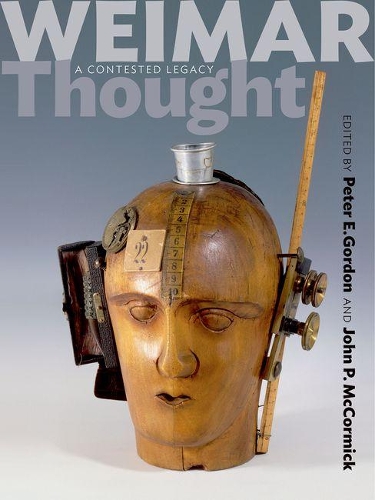
Weimar Thought: A Contested Legacy
(Hardback)
Available Formats
Publishing Details
Weimar Thought: A Contested Legacy
By (Author) Peter E. Gordon
Edited by John P. McCormick
Princeton University Press
Princeton University Press
10th September 2013
United States
Classifications
Tertiary Education
Non Fiction
History of ideas
193
Physical Properties
Hardback
464
Width 152mm, Height 235mm
794g
Description
During its short lifespan, the Weimar Republic (1918-33) witnessed an unprecedented flowering of achievements in many areas, including psychology, political theory, physics, philosophy, literary and cultural criticism, and the arts. Leading intellectuals, scholars, and critics--such as Hannah Arendt, Walter Benjamin, Ernst Bloch, Bertolt Brecht, an
Reviews
"By seeking understanding and refraining from evaluative synthesis, every contribution in this volume prompts the reader to reflect on lessons of Weimar in light of the present social, political, and cultural situation. Its innovative methodological outlook and its numerous field-specific interventions make Weimar Thought an indispensible resource for any future studies of the epoch."--Dennis Johanssen, German Quarterly "This sophisticated compendium of 19 essays by leading scholars in history, cultural studies, political science, and philosophy attempts to address the complexity, importance, and legacy of one of the 20th century's most important eras of intellectual activity... [T]hese intellectual histories are not very connected to context, providing instead effective overviews and suggesting some new ways to consider intellectual giants of the 20th century. That feat is impressive and valuable."--Choice
Author Bio
Peter E. Gordon is the Amabel B. James Professor of History at Harvard University. His books include "Continental Divide" and "Rosenzweig and Heidegger". John P. McCormick is professor of political science at the University of Chicago. His books include "Machiavellian Democracy" and "Weber, Habermas, and Transformations of the European State".
